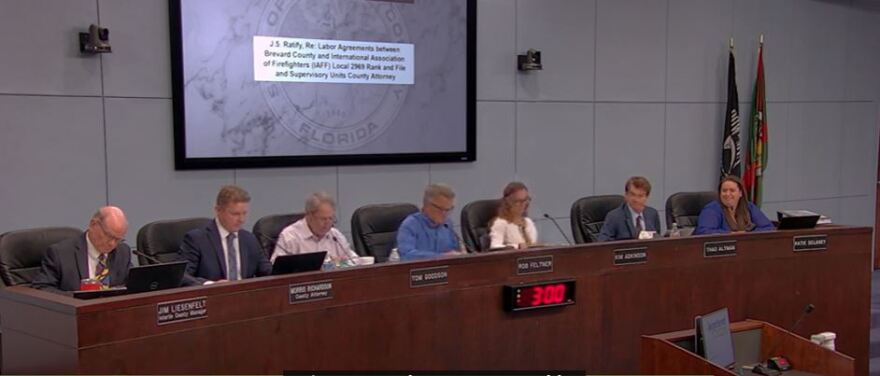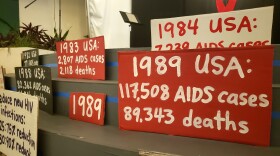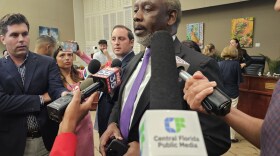Brevard County Fire Rescue firefighters scored a win Tuesday with the approval of a new contract that provides increased wages over the next three years amidst a staffing shortage. The union said it’s only the first step in addressing the real issue, the work-life balance.
Brevard County commissioners unanimously approved the contract.
“This has been a tough hill to get over, but I think we’re making a lot of progress, and this was a great first step,” said District 1 Commissioner Katie Delaney. “I hope we continue to make this even better.”

The contract covers a wide variety of wage improvements, including a 21% increase for EMT firefighters. Additionally, new recruits will also see a jump in BCFR wages. Currently, a newly-hired, dual-certified firefighter paramedic starts at $50,000. Under the new contract, they’ll receive $68,000 annually, said Lt. Michael Bramson, union president of Local 2969. Fire prevention inspectors are expected to see raises, too, some of which could be as much as 50% over the next 15 months.
The raises are a boost to team morale, Bramson said, but it’s the first step in the real problem.
“We needed to be competitive in the ability to hire people,” Bramson said.

Last year, BCFR saw a shortage of 100 firefighter positions. Currently, there are 82 positions open, Bramson said.
“We're falling behind when we don't have enough paramedics. We just can't provide that service. We can't provide the training; therefore, we can't provide the service,” Bramson said.
The Florida Fire Chiefs Association noted a statewide firefighter shortage and retention challenge in 2023, attributing increased medical risks related to cancer, the COVID-19 pandemic, mental health, and social climate as the main causes.
A large portion of the BCFR staff who left were retiring firefighters, some of them retiring early and taking years of experience with them, Bramson said.

“We can't teach your knowledge and be able to read fire, see smoke, be able to walk into a building and understand heat and human emotions, and deal with all these types of things. We need that experience,” he said.
Compounding a lack of mentors is also a lack of resources. BCFR is short six ambulances, Bramson said. It’s also short on the ideal number of paramedics. About 10 years ago, each ambulance would have had two paramedics per call.
“Now we only have one, and we just had a complete degradation of service over the past decade,” Bramson said.
One of the bigger reasons firefighters were leaving BCFR is the lack of work-life balance. Usually, there’s an expectation of working 24 hours and then taking a break for 48 hours. However, as more staff openings were made, overtime became mandatory. The state of Florida encourages fire departments to use a 42-hour work week model. Presently, BCFR firefighters are scheduled for a 56-hour work week, Bramson said.
A better work-life balance is not in the current contract, but Bramson believes the union and the county are on track for further negotiations that will deal with that challenge, and that the current wage improvements will help them get there.
“We understand that, and we're patient. We understand the negotiations needed to get there. But we love Brevard County. We want to do our job for Brevard County. We're willing to work those hours to get there,” he said.
The first round of raises will start retroactively in the first week of August, Bramson said, and then an even larger raise will kick in by mid-October.






